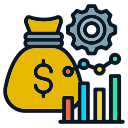Strategies for Financial Management in Remote Work
Today’s selected theme: Strategies for Financial Management in Remote Work. Build confidence with practical systems, stories, and tools that help remote professionals budget, save, invest, and thrive—wherever your desk happens to be. Subscribe for weekly playbooks, and share your favorite tactics so we can learn together.
Your Remote Money Map
List non-negotiables like rent, healthcare, and student loans, then variable items like groceries, travel, and utilities. Add remote-specific costs: faster internet, coworking passes, software subscriptions, and gear. Seeing these categories clarifies trade-offs, reveals savings, and helps you plan proactively instead of reacting. What categories surprised you most?
Your Remote Money Map
Go beyond three months of expenses. Include a flight home, equipment replacement, a temporary coworking upgrade, and a cushion for delayed invoices. Many remote workers use a two-tier system: quick-access cash plus a higher-yield reserve. Name your fund with purpose, automate contributions, and celebrate milestones to stay motivated. What’s your target amount?




Automation and Tools that Think While You Work
Use a dedicated app or spreadsheet tied to cards like Wise, Revolut, or Monzo for clean categorization and currency conversion. Tag remote-specific items like coworking, hotspots, and client software. Set weekly check-ins to catch anomalies early. A clear dashboard builds calm and gives you control before small leaks become costly floods. What will you track first?
Automation and Tools that Think While You Work
Schedule transfers on payday: a set percentage to taxes, long-term investments, emergency fund, and big goals. Automatic rules reduce decision fatigue and protect you from emotional spending after stressful weeks. Keep tax and investment accounts separate for clarity. If you pause automation, write a restart date immediately. What percentage will you try first?
Track the portion of your space used exclusively for work, internet upgrades required for client calls, and equipment essential to deliver services. Keep simple logs, photos, and receipts. Even if rules vary by country, good documentation is universal. Create a monthly checklist so deductions do not become a stressful year-end scramble. What will you document today?
Taxes and Compliance for the Remote Reality
Master Irregular Income with Simple Systems
Route all invoices to one income account, then transfer a fixed salary to your spending account monthly. Keep raises modest and predictable. Developer Sofia regained clarity by separating business cash from personal life, eliminating late-bill anxiety. It feels corporate, but it brings calm. Would a 30-day buffer change how you work?
Master Irregular Income with Simple Systems
Offer monthly retainers for predictable work, milestone billing for projects, and late fees that protect your time. Clear terms reduce chasing and improve client relationships. Share a simple payment schedule upfront to set expectations. What one boundary will you add to your next proposal to stabilize income?
Master Irregular Income with Simple Systems
Choose target percentages for spending, taxes, saving, investing, and fun. Adjust seasonally based on goals and location costs. The structure prevents over-expanding lifestyle during good months and keeps progress steady during slow ones. Try a light version for thirty days and tweak. Which categories deserve a bigger slice right now?






Rituals, Mindset, and Community for Money Confidence
Run a 30-Minute Weekly Money Review
Set a recurring calendar block. Reconcile expenses, check category drift, move money to goals, and review upcoming invoices. Celebrate one small win every week to keep momentum. Author Dani calls it her Friday Focus and swears it protects weekends. Will you try it this Friday and report back?

